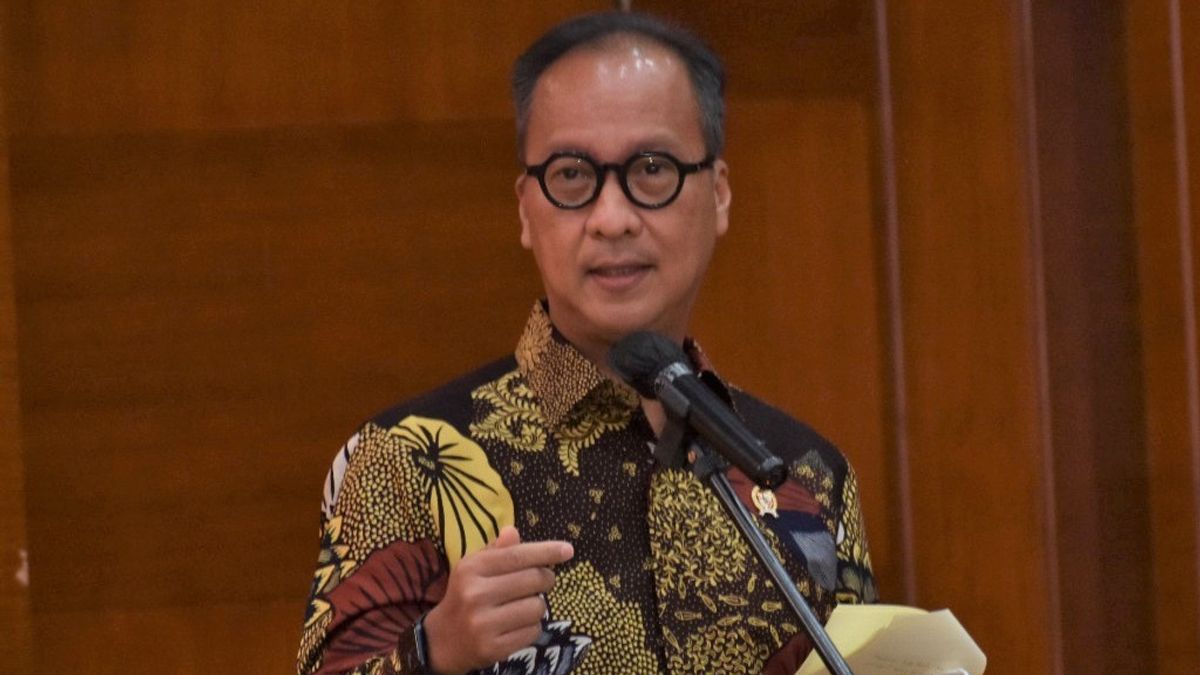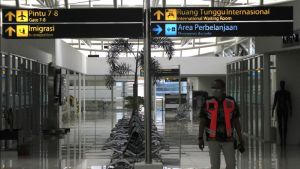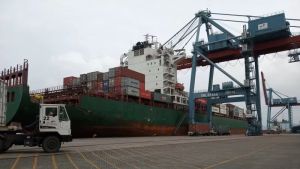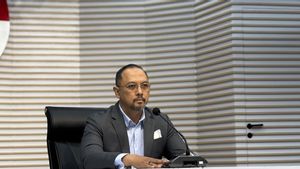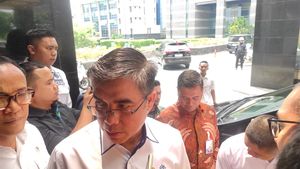JAKARTA - The Ministry of Industry is focused on continuing to build a manufacturing industry sector that is sovereign, independent, competitive, and inclusive. However, the COVID-19 pandemic has had an impact on efforts to achieve these national priority targets.
"Despite the turmoil and challenges caused by the pandemic, the manufacturing industry sector has consistently played an important role as the main driver and support for the national economy. In fact, we can state that the manufacturing industry sector is the main driving sector for Indonesia to get out of recession," said Industry Minister Agus Gumiwang. Kartasasmita at the Ministry of Industry's 2021 End of Year Press Conference in Jakarta, Wednesday, December 29.
The Minister of Industry said that this year the manufacturing industry sector began to bounce back. This can be seen from a number of brilliant performances, including investment realization, export achievements, tax contributions, contributions to GDP, and Purchasing Managers Index (PMI) ratings.
During January-September 2021, the realization of investment in the manufacturing sector was recorded at Rp. 236.79 trillion. This figure is up 17.3 percent when compared to the realization of investment in the same period in 2020 of IDR 201.87 trillion.
In terms of the achievement of export value, the contribution of the manufacturing industry continues to increase even in the midst of the crush of the pandemic. The export value of the manufacturing industry in January-November 2021 reached 160 billion US dollars or contributed 76.51 percent of total national exports. This figure has exceeded the achievement of manufacturing exports throughout 2020 of Rp. 131 billion, and even higher than the achievement of exports in 2019.
"When compared to January-November 2020 (c-to-c), the export performance of the manufacturing industry in January-November 2021 increased by 35.36 percent. " said Agus.
The Minister of Industry explained that the achievements of the manufacturing industry sector in terms of investment and exports accompanies its contribution to state revenues and to the formation of national GDP which continues to increase.
For the processing industry sector tax throughout the year, on average, it contributed 29 percent, while excise revenue from the industrial sector contributed 95 percent of the total national excise revenue," he said.
As for the contribution aspect to GDP, the contribution of the manufacturing industry in the third quarter of 2021 was 17.33 percent, where this figure is the highest among other economic sectors. Had been depressed to minus 2.52 percent in 2020, the growth of the manufacturing industry sector returned to enthusiasm in 2021, where the growth rate increased significantly in the second quarter of 2021 by 6.91 percent (yoy), in line with national economic growth which also rose by 7, 07 percent (yoy).
Dynamics also occurred in the achievement of the Purchasing Managers Index (PMI) of Indonesian manufacturing. After being swayed by restrictions on community activities, including in the manufacturing industry sector in 2020, Indonesia's manufacturing PMI slowly rose and returned to expansive levels.
Indonesia's manufacturing PMI figures throughout 2021 are generally at an expansionary level, except in July and August due to activity restrictions during the Emergency PPKM and Level 4 PPKM.
Apart from that, Indonesia's Manufacturing PMI has even broken several record highs in history, namely at 53.2 in March, then 54.6 in April, 55.3 in May, and a peak of 57.2 in October. . This expansive position is believed to last at the end of this year.
On the employment aspect, along with the rise of the manufacturing sector from the impact of the pandemic, there will be an additional employment of 1.2 million people in 2021 so that the total number of workers in this sector will again increase to 18.64 million people.
"By looking at these various performance indicators, in the midst of the COVID-19 pandemic, the Indonesian manufacturing industry as a whole is still showing very good performance," said the Minister of Industry.
The good macro performance of the industrial sector is inseparable from the success of the government in implementing gas and brake policies, so that the activities of the manufacturing industry never really stop.
"The gas and brake policy in the manufacturing industry sector was lowered in the form of the Operational Permit and Industrial Activity Mobility (IOMKI) policy issued by the Ministry of Industry," he added.
Over time, IOMKI's policies have succeeded in pushing for a balance between health interests and economic interests in the manufacturing industry sector and spurring industry players to be confident and quickly adapt to pandemic conditions.
"This balance, confidence, and adaptability form good resilience in the manufacturing industry sector in facing a pandemic situation," he explained.
In addition, in order to improve the performance of the industrial sector, the Ministry of Industry has implemented strategic programs and policies such as the program to Increase the Use of Domestic Products (P3DN), the development of the halal industry, and the 35 percent import substitution program by 2022.
Projection 2022The Minister of Industry also stated that the COVID-19 pandemic has not yet shown its end and will most likely accompany this nation's journey in accelerating the development of the manufacturing industry next year. However, with the experience and lessons learned during the COVID-19 pandemic, optimism for 2022 and the future will never subside.
"Along with improving national economic conditions, we are targeting manufacturing industry growth of 4-4.5 percent in 2021, and 4.5-5 percent in 2022," he said.
In line with this, the export value of the manufacturing industry is targeted to be in the range of US$170-175 billion in 2021, and will reach US$175-180 billion in 2022.
Meanwhile, in terms of investment value, the Ministry of Industry targets IDR 280-290 trillion in 2021, and IDR 300-310 trillion in 2022.
"We are also targeting employment of 20.84 million people in 2022," he explained.
In an effort to achieve these targets, continued the Minister of Industry, various challenges that will be faced in 2022 have been identified. These challenges include disruption of the supply chain, scarcity of containers caused by trade imbalances by sea, as well as various international events, especially international exhibitions or exhibitions. which is held in virtual or digital form is considered less able to attract visitors.
Next, dependence on imports of raw materials and auxiliary raw materials, and the need for mitigation efforts against the wave of Omicron virus variants in the industrial sector.
"We are also reviewing the proposal to provide new incentives for certain industrial sectors so that industrial competitiveness increases," he said.
To achieve these targets, the Ministry of Industry will roll out several main programs. For example, as a continuation of Indonesia's partner country at Hannover Messe 2020: Digital Edition and in order to prepare Indonesia to become a partner country of Hannover Messe 2023, the Ministry of Industry again participated as a special guest at Hannover Messe 2022.
"This event is important because Indonesia will accept the handover of partner country status from Portugal, which is the partner country for the Hannover Messe 2022, as well as strengthen Indonesia's steps in treading the Industry 4.0 era with industrial countries in the world," he explained.
Through the participation of Hannover Messe 2022, it is hoped that there will be agreements both G-to-G and B-to-B that support the creation of multinational company investment and export opportunities.
Furthermore, Indonesia officially holds the 2022 G20 Presidency starting December 1, 2021, where the Government of Indonesia sets a big theme for this presidency, namely "Recover Together, Recover Stronger". As President at the 2022 G20 forum, the Government of Indonesia proposed adding industrial issues in the Trade and Investment Working Group to become the Trade, Investment and Industry Working Group (TIIWG).
This Working Group will discuss priority issues related to industry, trade and investment in order to support the recovery of the world economy from the impact of the COVID-19 pandemic. The industrial issue that is planned to be brought up in the TIIWG is "Inclusive and Sustainable Industrialization via Industry 4.0" in the big theme of strengthening the SDGs for economic recovery.
"It is hoped that this can trigger discussions of G20 member countries to accelerate the implementation of industry 4.0, increase equitable access to technology, mitigate the negative impacts of technological change and strengthen collaboration to support inclusive, sustainable industries and global economic recovery," he explained.
Then, through the funding of State Sharia Securities (SBSN), 1 unit of phytopharmaca production facilities will be built at the Center for Packaging Chemicals that supports the import substitution program. The spaces to be built are Miniplant for Phytopharmaca Production, Smart Laboratory, Center of Essential Oil, Soft Computing Room and Satellite 4.0 for Phytopharmaca.
In 2022, there will also be the development of cooperation and the PIDI 4.0 ecosystem as well as the filling of showcase facilities, training equipment and research laboratories and test beds at PIDI 4.0. PIDI 4.0 will also focus on preparing human resources for PIDI institutions as well as developing a talent pool and industry 4.0 expert pool. It will also develop PIDI satellites located in the Polytechnic Education unit of the Ministry of Industry and industrial companies.
The next program in order to reduce or eliminate dependence on imports, the Ministry of Industry took the initiative to build the Indonesia Manufacturing Center (IMC). IMC will bridge the gap between the demand side of the industry for machinery and the supply side of machinery from the results of research, development, and innovation either by universities, research institutes, or industry.
In 2022, there will also be the Development of a Center of Excellence for Medical Devices, Facilitation of Commercialization of Research Results, Innovation and Infrastructure Facilitation of a Center of Excellence for Medical Devices.
In addition, as an effort to increase the use of domestic products, in 2022, the Ministry of Industry will again provide free certification facilitation to domestic industrial companies including but not limited to industrial products of medical devices, machinery, pharmaceuticals, machinery, electronics and telematics, metals, electricity, chemicals, fertilizers, automotive and their components, ceramics, cement, textiles, and SME products. Facilitation of TKDN certification in 2022 is given for at least 1,250 product certificates.
The English, Chinese, Japanese, Arabic, and French versions are automatically generated by the AI. So there may still be inaccuracies in translating, please always see Indonesian as our main language. (system supported by DigitalSiber.id)
